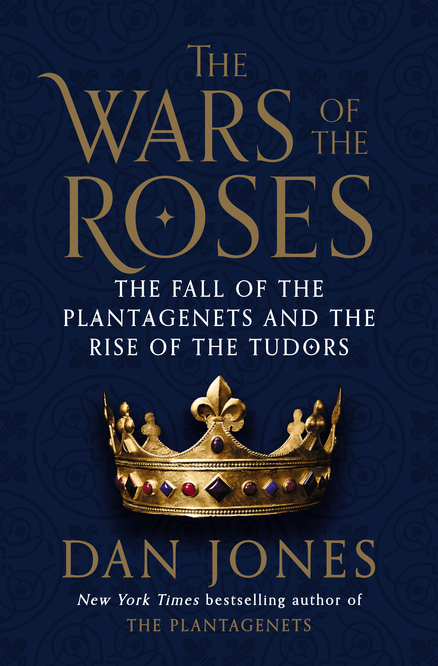 Perhaps you ought to revisit the historical record. One good place to start would be Dan Jones’ entertaining account of the dynastic battles that generated decades of upheaval in Great Britain from the death of the wildly popular Plantagenet king Henry V in 1422 to the effective end of credible challenges to Henry VIII’s rule in 1525.
Perhaps you ought to revisit the historical record. One good place to start would be Dan Jones’ entertaining account of the dynastic battles that generated decades of upheaval in Great Britain from the death of the wildly popular Plantagenet king Henry V in 1422 to the effective end of credible challenges to Henry VIII’s rule in 1525.
Known popularly as The Wars of the Roses, the conflicts during that turbulent century featured frequent armed rebellions and invasions, politically motivated long-term imprisonments and attainders, even beheadings.
As Jones explains, conventional wisdom about the period has been dominated for centuries by effective propaganda from the war’s “winners,” the Tudors. His narrative corrects the record.
… [T]he Wars of the Roses and the destruction of the House of Plantagenet did not really come about because two factions divided by blood were destined to atone through war for the sin of deposing Richard II. All the evil of the fifteenth century was not embodied in a villainous Richard III, any more than the marriage of Henry VII and Elizabeth of York provided instant salvation. Rather, this was a vicious and at times barely comprehensible period of deep political instability, which stemmed ultimately from a collapse in royal authority and English rule in France under Henry VI. In a system in which law, order, justice, and peace flowed so heavily from the person of the king and the office of the Crown, Henry VI’s reign (and his afterlife between deposition in 1461 and his death ten years later) was a disaster. The English system of government was robust in the 1420s and 1430s. … But it was not robust enough to deal with an adult king who simply would not perform his role.
If nothing else, fans of the American constitutional system will pick up new reasons to thank the Founders for setting up a system based on the rule of law rather than the rule of man. While 15th-century British political history is fascinating (so fascinating that it’s easy to see clear parallels between Jones’ narrative and the popular HBO series “Game Of Thrones”), no one would enjoy living today with a similar degree of perpetual upheaval and deadly intrigue.


